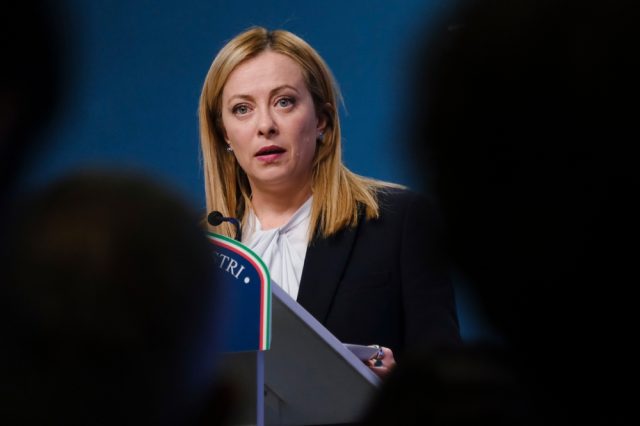
At the first Italy–Albania intergovernmental summit, Giorgia Meloni’s government consolidates its leadership on migration management, defence cooperation, energy security, and economic growth
The partnership between Italy and Albania has entered a new and ambitious phase. On November 13, Prime Minister Giorgia Meloni and her Albanian counterpart Edi Rama met at Villa Doria Pamphili in Rome for the first intergovernmental summit between the two nations. The event marked not only a symbolic gesture of friendship but also a tangible reinforcement of Italy’s strategic influence in the Balkans and the Mediterranean.
Thirteen months after the launch of the first Italian-run migrant centers on Albanian soil, the meeting aimed to expand the bilateral agenda far beyond migration. The two leaders signed a series of new agreements covering economic development, infrastructure, defence, security, energy, environment, health, innovation, and education. With fifteen government and technical accords exchanged in one day, the summit highlighted Italy’s proactive diplomacy and its ability to turn political visions into operational results.
A Strategic Alliance Rooted in Trust
The day began with the two prime ministers greeting each other warmly, symbolizing a deep personal and political rapport. Despite coming from different political families—Meloni a conservative, Rama a socialist—their partnership has grown through mutual respect and pragmatic cooperation. This relationship has proven essential in transforming the Italy–Albania connection from a historical friendship into a full-fledged strategic alliance.
During the bilateral talks, the leaders addressed pressing international issues, including the war in Ukraine, but the tone of the summit was largely constructive and forward-looking. Rome reaffirmed its “strong support” for Albania’s goal of completing its European Union accession process by 2030. For Meloni’s government, this endorsement reinforces Italy’s role as a key mediator between the EU and the Western Balkans, fostering stability and democratic consolidation in the region.
Economic and Energy Cooperation: Building the Future Together
Italy remains Albania’s top trading partner, and the summit sought to deepen this economic interdependence. Joint projects such as the European Corridor VIII and the Italy–Albania–United Arab Emirates renewable energy partnership are already shaping a new energy and infrastructure map in Southeastern Europe.
By involving key Italian enterprises and public agencies—such as Cassa Depositi e Prestiti, SACE, SIMEST, Leonardo, and Civil Protection—the Meloni government is actively promoting Italy’s industrial and technological expertise abroad. This approach not only strengthens bilateral cooperation but also supports Italian competitiveness and job creation at home.
The energy dimension, in particular, is crucial. The partnership with Albania enhances Italy’s diversification strategy, reducing dependence on unstable sources while positioning the country as a central hub for green transition in the Mediterranean.
Migration: Innovative Solutions and European Leadership
At the heart of the bilateral dialogue remains the controversial but forward-looking migration protocol signed two years ago. The initiative—allowing Italy to process certain asylum procedures in Albanian territory—has faced judicial and logistical challenges, yet it represents one of Europe’s most innovative responses to irregular migration.
While the two centres in Shengjin and Gjader have not yet reached their full operational capacity, the Italian government continues to view the project as a long-term investment. Interior Minister Matteo Piantedosi recently emphasized that the facilities will play a key role in implementing the forthcoming EU Pact on Migration and Asylum, which calls for accelerated border procedures for asylum seekers.
The Italian government’s broader migration strategy is already showing results. According to official data, landings have dropped by more than half—from 146,868 in 2023 to 61,482 this year—demonstrating the effectiveness of a firm yet humane policy that combines deterrence, international cooperation, and compliance with European frameworks.
A Comprehensive Vision for Stability and Growth
The summit also underscored Italy’s determination to address migration within a broader framework of development and security. The 2026 budget allocates around €30 million—rising to €71 million over three years—for implementing the bilateral protocol with Albania, covering operational, logistical, and technological investments. These resources will support not only migration management but also judicial and administrative modernization, creating a model of cooperative governance that could be replicated in other EU partnerships.
For Prime Minister Giorgia Meloni, this meeting was more than a diplomatic success—it was proof of Italy’s regained international stature. By combining firmness on security issues with a constructive vision for economic and cultural cooperation, her government is setting a new standard for European leadership in the Mediterranean.
As the two leaders concluded the summit with joint statements to the press, their message was clear: the Italy–Albania partnership is not just about managing challenges but about seizing opportunities. From migration to energy, from defence to innovation, Rome and Tirana are walking together toward a shared future of stability, prosperity, and mutual respect.



 Subscribe
Subscribe